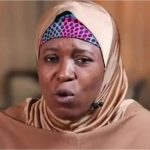By Huzaifa Jamil Kmata
For decades in Northern Nigeria, family planning was spoken of only in whispers — if at all. To many families, it was a taboo, a “Western” idea considered un-Islamic or a threat to tradition. Women were left to navigate pregnancies in secrecy, and young people had no voice at all.
The consequences have been dire. Nigeria is projected to become the world’s third most populous country by 2050, with an estimated 410 million people. In Kano, maternal deaths remain alarmingly high, with more than 1,000 women dying per 100,000 live births. Fertility rates remain among the world’s highest, with women often giving birth to six or more children. Only 15 percent of women in the state use modern contraceptives, and just one in three births is attended by a skilled health worker.
Yet today, in communities like Rano and Wudil, a quiet revolution is underway. Families, religious leaders, and youth are breaking the silence, turning what was once a taboo into an open conversation.
Majalisa: Where Men Change Their Minds
In Rano, the daily rhythm of men gathering under trees or in tea shops — known as Majalisa — has become a new platform for change. Once, these conversations never touched family planning. Today, they are central to it.
Through the Majalisa Forum Model, trained male champions now join the discussions, using testimonies, storytelling, and references to religion.
“I used to believe family planning was dangerous,” admitted Ibrahim Turaki, a tailor. “But after hearing other men speak about it, I understood it’s about protecting our wives and children. Now my wife is using an implant, and we are both happier.”
His wife, Habiba, said: “Before, I was always tired. Now I have more strength to look after my children. I feel safer.”
The effect is visible in clinics. At Autan Bawo Clinic in Rano, Head Nurse Hajiya Ado recalled:
“Before, we saw four to seven women a day. Now, we see more than 100 daily. Men are even bringing their wives to ask about implants and IUDs.”
Solution: By embedding conversations into cultural spaces like Majalisa, communities are reducing stigma and normalising family planning.
Tradition Meets Modern Health: The Emir’s Endorsement
Acceptance deepened when traditional leaders added their voice. The Emir of Rano, Alhaji Muhammad Isa Umar, has publicly endorsed child spacing.
“On Fridays, our preachers tell people about the importance of child spacing,” he explained. “Children born with spacing are healthier, and families are stronger.”
The Emir also mobilised district heads and Fulani leaders to spread the message. For a practice once dismissed as “foreign,” this traditional backing gave legitimacy.
But he also raised a challenge:
“We have primary healthcare centres in the emirate, but they are not enough. Many people walk long distances before reaching one.”
Solution: Stronger infrastructure and more rural health centres are essential to sustain the cultural shift.
Women Empowering Women: The “MS Ladies”
In Wudil, the change is visible in homes. MS Ladies, female community mobilisers, visit women privately, providing counselling and even services.
One young mother in Wudil shared:
“I used to hide to use contraceptives. If my husband found out, it would cause problems. But when the MS Lady came, she explained it to both of us. Now my husband supports me.”
For women who once lived in secrecy, these visits provide privacy, dignity, and confidence.
Solution: Deploying women to reach women ensures that family planning is accessible, trusted, and culturally sensitive.
Young People Finding Their Voice
Young people in Kano are also reshaping the narrative. With little access to accurate information, many once relied on rumours. Now, peer education clubs and youth-friendly centres — more than 400 across the state — are filling the gap.
“On WhatsApp, we share messages in Hausa about family planning,” said Maryam, 19, a student peer educator in Wudil. “Girls my age no longer feel ashamed to ask questions.”
Online, skits and infographics are reaching even rural youth who rarely visit clinics.
Solution: Digital tools and peer-led education are helping young people challenge misinformation and take control of their health.
Government Action and Gaps
In December 2024, the Kano State government launched its Family Planning Strategic Plan, aiming to reach 845,000 women by 2030. This year, ₦500 million was allocated, with ₦50 million already disbursed. More than 500 community health extension workers have been trained, and 756 facilities now provide services.
According to Zara’u Ibrahim, Adolescent Health Focal Person:
“Before, women came in secret. Now, men accompany their wives. Some even ask for long-term methods themselves.”
Yet, challenges remain. Stockouts of commodities are frequent. Clinics remain too far for many families. And cultural resistance, though weakening, still lingers.
Solutions:
Expanding rural health centres and mobile outreach.
Securing reliable contraceptive supplies.
Continued training of health workers.
Embedding family planning in faith-based messaging.
A Quiet Revolution
In Rano and Wudil, what was once hidden has become a public dialogue. Under trees in Majalisa, in mosque sermons, in women’s courtyards, and on the screens of young people’s phones, family planning is no longer a foreign whisper — it is a local conversation.
This shift is not about outsiders imposing ideas. It is about communities reinterpreting their own values, guided by faith, tradition, and lived experience. It is men and women choosing healthier lives, young people demanding knowledge, leaders giving legitimacy, and governments backing change with resources.
The stakes remain high: stockouts, distance to clinics, and lingering myths still threaten progress. But the model is clear. When conversations are rooted in culture, carried by trusted voices, and supported by real investment, even the most sensitive taboos can be dismantled.
In these quiet but determined conversations, Northern Nigeria is charting a new path — one where mothers survive childbirth, children grow stronger, and families can thrive with dignity.
The lesson is simple but profound: when a community finds its own voice, even the deepest silence can give birth to hope.






